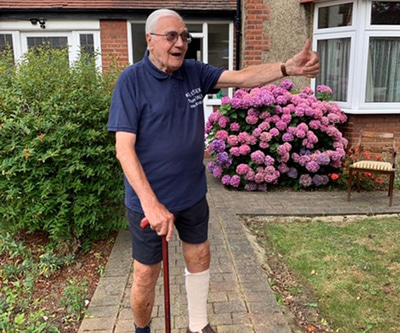Sharing the burden
The NHS faces a lengthy path to recovery from COVID-19. Now more than ever it is time for healthcare professions to work together
2 min read

Getty/z_wei.
23 July 2020
In March, few people would have guessed how long-lasting the dramatic changes to the way Britons work, socialise, shop and care for their health would be.
However, it is now four months since the UK was told to stay at home to stem the spread of COVID-19 and, despite the easing of some restrictions, there is no suggestion that social distancing measures will be dropped – perhaps remaining in place until next year.
This has posed challenges across every workplace. In healthcare, it means that after a three-month pause on routine treatment and procedures, hospitals are limited in clinic capacity as they begin to see more patients again.
A statement by the NHS Confederation estimated that the NHS waiting list could reach 10 million by the end of the year, or possibly higher if there is a second wave of COVID-19 and a lack of treatment or a vaccine.
OT delves into this confronting statistic in our upcoming edition for August and September. We also investigate how optometrists can help to ease the burden on secondary care during this time – both by working within the NHS and by caring for patients within the community.
It is so important now for healthcare professions to join together to make sure that patients receive the best care possible.
As Welsh optometrist, Shiraz Megji, told OT as part of our On the Ground series: “I couldn’t have clapped on my doorstep every Thursday evening if I felt like I wasn’t doing my bit during this crisis.”
One person certainly doing his bit during the pandemic is centenarian Kenneth Essex.
Mr Essex walked 1-kilometre each day in the ten days leading up to his 100th birthday on Monday (20 July), raising more than £16,000 for Moorfields Eye Hospital, where he is receiving treatment for macular degeneration.

Kenneth Essex/JustGiving
Kenneth Essex completes his final fundraising walk on Sunday (19 July), one day before his 100th birthday.
“The treatment I have received has been exceptional, especially at this difficult time,” he noted on his JustGiving page.
The fundraising walk is another milestone in Mr Essex’s eventful life. After serving in the Royal Marines during the second world war, he became a professional viola player. He performed in string quartets that provided the music for Fawlty Towers and Paul McCartney’s Yesterday.


Comments (0)
You must be logged in to join the discussion. Log in